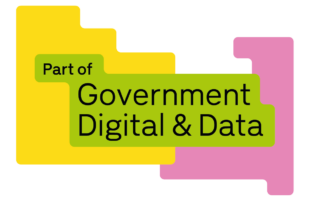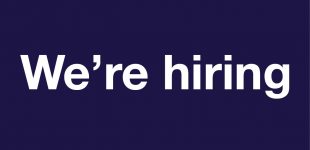
Richard Given

I am one of the senior civil servant sponsors for DBT's Neurodiversity network. When the introduction of Co-Pilot was being discussed with Digital Data and Technology (DDaT) colleagues, there was a sense that it could be a powerful tool for neurodiverse staff. Neurodiversity can bring unique strengths and challenges to the workplace. No two neurodiverse people experience the world in the same way, but they often thrive where clarity, structure, and clear communication are prioritised. They bring those qualities to their work – areas where digital assistance can be transformational.
Co-Pilot is a conversational, AI-powered tool that can assist with tasks like writing, editing, summarising and generating text. Tools like Co-Pilot reduce cognitive load by simplifying some of the complexity. For example, drawing out key points from long, laborious email chains that seem to be central to how we communicate with each other. It also helps people to organise their thoughts. This frees up people to focus on leveraging their creativity and problem-solving skills. As well as enhancing productivity, it fosters inclusion, allowing people to fully harness their strengths.
I was delighted when our DDaT colleagues agreed to include specific questions in the evaluation exercise to test the tool’s benefits for neurodiverse staff. I appreciate that they invested so much in getting people the training they needed to use the tool effectively.
The experiences described below by neurodiverse staff members.
Maddy Lunskey

A common experience for neurodivergent people is a desire to get into the detail of things. This can be particularly challenging in working environments, where understanding is regularly assumed, or there isn’t time for thorough explanations. As a non-technical person working in technical teams, I often find myself hung up on questions about how things work. I also feel the need to spend time gaining a deeper understanding of things mentioned in passing by colleagues, before I can properly engage in the topic at hand.
I have loved using CoPilot to revolutionise my quest for detail! Beforehand, I would often leave meetings having opened numerous tabs with a Google search of a new acronym or product that had been mentioned. It was a chore to go through those tabs, trying to gather enough detail to feel confident in my understanding of everything.
The CoPilot trial at the end of last year co-incided with me starting a new role as a Product Manager for AI Enablement. In this new territory, I had even more questions. Seemingly made-up words were bandied around in meetings. I worked hard to follow conversations while my brain was stuck questioning what these things were and how they worked.
I was able to use CoPilot during meetings to provide summaries of new terminology I came across. I prompted CoPilot by telling it my role and the level of detail I wanted. At the end of the meeting, I could read through an easily digestible amount of information pitched at an appropriate level. I found this much quicker and more manageable than Googling.
Although I have now been in my role for longer, and come across less unknowns each day, I still use CoPilot regularly. I think it will continue to be an important resource for me, especially as AI continues to develop, and I continue to come across new ideas.
Sarusha Navaratnarajah

Discovering my neurodivergent identity has been a transformative experience. It's comforting to know that there are others who share similar thoughts and struggles, unlike most neurotypical individuals. This realisation has been particularly significant in my role at DBT, where I am required to respond quickly to varied stakeholders across all governmental departments. The fast-paced nature of my job can be overwhelming, often leading to overthinking and producing long-winded emails and discussion points.
One tool that has become indispensable in my daily routine is Co-pilot. It helps me plan my thoughts and ideas into concise and impactful replies, improving my colleagues' understanding of my points. This facilitates progress in the projects I am part of. Additionally, my diagnosis revealed that my hyperfocus on work affects my time management, impacting both my personal life and work environment. This can sometimes be mistaken for laziness or poor preparation.
Studies show that neurodivergent individuals often work harder on tasks considered basic by others. To manage this, I use Co-pilot to organise my weekly schedule and allocate time for each task. Setting timers while working prevents overrunning, and these tools have boosted my confidence and the quality of my work.
Embracing neurodivergence has not only helped me understand myself better, but also allowed me to leverage tools like Co-pilot to enhance my productivity and communication. It's a journey of continuous learning and adaptation, and I'm grateful for the support and resources that make it possible.
Ready to join us?
Digital, Data, and Technology are always looking for a wide range of skills. Explore current opportunities and discover how you can make a difference.

